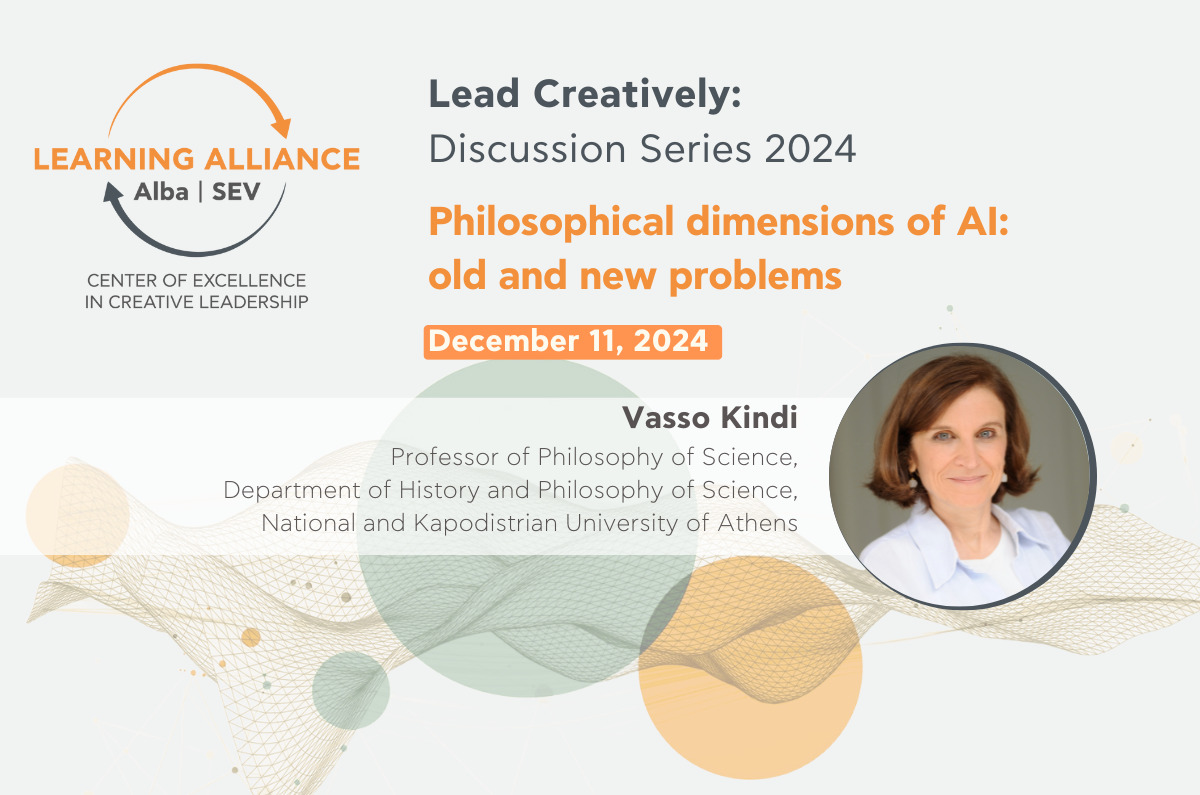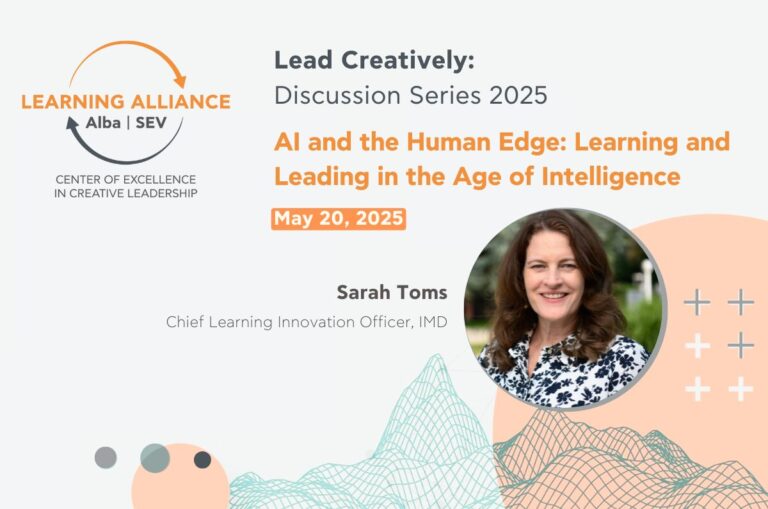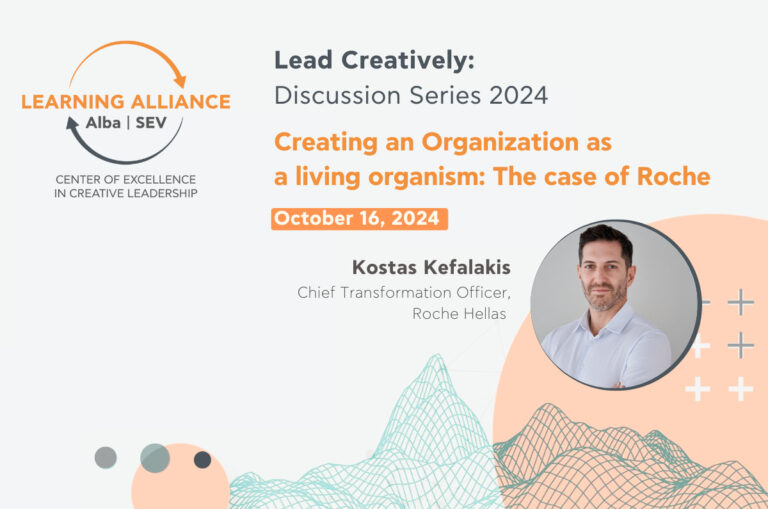Philosophical dimensions of AI: old and new problems
We are excited to invite you to the second event of this academic year, part of the “Leading Creatively” Discussion Series, organized by the SEV Center of Excellence in Creative Leadership. The event will be held on Wednesday, December 11, 2024, from 18:00 to 19:30, at Alba Graduate Business School (Xenias 6-8, Athens, 11528). Our guest speaker is Vasso Kindi, Professor of Philosophy of Science at the Department of History and Philosophy of Science of the National and Kapodistrian University of Athens
To create a more meaningful experience through personal connections, we’re hosting this as an in-person gathering only. There won’t be an option to join virtually.
The event, will be conducted in Greek.
Register here
The reaction to developments related to artificial intelligence is marked either by awe at the scope of its capabilities (whether already apparent or projected) or by fear of the potential implications and the unknown risk of the changes ahead. Philosophy can deal with the concerns that have arisen less alarmingly because similar issues to those raised today in relation to artificial intelligence have already been discussed, in the past, in the philosophical literature.
For example, whether Large Language Models (LLMs) can think is analogous to the question of whether animals, which were historically considered mere automata, are capable of thought. The question of how to distinguish humans from machines has also been explored (given also that humans themselves have been thought of as machines). Issues of authenticity, originality, and creativity are not being raised for the first time, while ethical concerns related to privacy, responsibility, accountability, transparency, bias, intellectual property, etc., are variations of old problems. Deriving theories from large datasets is also an age-old practice.
What differs now from the past is mostly scale and speed. Now, the fact that these issues have been discussed does not mean that definitive answers have been reached. But, it does mean that philosophy can offer us ways to address these issues more dispassionately and in their proper dimensions.
About the speaker
Vasso Kindi is Professor of Philosophy of Science at the Department of History and Philosophy of Science of the National and Kapodistrian University of Athens, Greece. She is the author, editor, co-author, and co-editor of books and articles on philosophy of science, T. S. Kuhn’s work, Wittgenstein’s and Collingwood’s philosophy, philosophy of history, philosophy of language, and ethics. Her most recent book is Philosophy of History (in Greek, 2021, English translation forthcoming in Bloomsbury). She is the President of State Scholarships Foundation (2024-), and a member of the Advisory Committee for AI to the Prime Minister of Greece (2023-). She has been the Editor-in-Chief of International Studies in the Philosophy of Science since 2019, Chair of the Graduate Program in History and Philosophy of Science and Technology (2022-2024), and the national representative to the Council of Europe Platform on Ethics, Transparency and Integrity in Education (2020-2024). In the summer of 2024, she was elected member of the Steering Committee of FISP (Fédération Internationale des Sociétés de Philosophie) for a five-year term. She has served as a member of the National Council of Research, Technology and Innovation (2019-2023), and as the national representative to the European Research Council (2021-2023). She has coordinated the project “University 2030” of the Bodossaki Foundation (2020-2021) and is a member of the board of the Lilian Voudouri Foundation (2023-). She is a founding member of the Hellenic Society of University Women and has been a member of its board (2011-2022). She regularly contributes to the press on philosophical issues of public interest and matters of academic policy and university reform.





